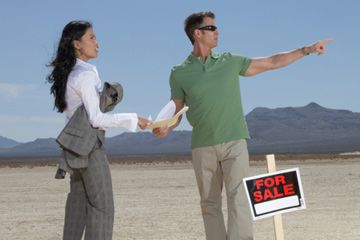"Individual commitment to a group effort -- that is what makes a team work, a company work, a society work, a civilization work." So said legendary football coach Vince Lombardi, and his words can help us understand what a society truly is.
Society is made up of individuals who have agreed to work together for mutual benefit. It can be a very broad term, as we can make generalizations about what the whole of Western society believes, or it can be a very narrow definition, describing only a small group of people within a given community. But no matter the size, and no matter the link that binds a society together, be it religious, geographic, professional or economic, society is shaped by the relationships between individuals.
Advertisement
There has been much debate over what makes a society successful. Philosopher Thomas Hobbes believed that without society, human life would be "nasty, brutish and short." Man's natural state, he argued, would be to preserve only oneself -- a man without society would steal another family's food, seduce other men's wives and kill anyone who got in his way. Of course, the same man would be in constant danger of those things happening to him, his wife and his children. What people needed, therefore, was a society, which would provide protection by subjecting everyone to a set of rules. But the number of governments, tribes and communities today demonstrate that there's no single way to form or govern a society.
Philosopher Jean-Jacques Rousseau dubbed the set of rules that a society lives by "the social contract." In other words, people must play a part in agreeing to certain laws and in choosing a given leader. If people lose that right, then society won't function as well. To return to Coach Lombardi's area of expertise, a society without an agreed-upon code of conduct would be like football without rules or a referee. People will cooperate and commit to a society only as long as they can choose the person who mediates and voice an opinion on the rules.
It's interesting, then, to observe the effects of the Internet on society. On the Internet, there's no referee, and the rules that govern our interpersonal contact don't seem to hold much sway. With the anonymity provided by a screen name, people feel like they can say things they wouldn't otherwise say, things that may even be hurtful or dangerous. And because you can do everything from order a pizza online to pay your electric bill, some academics worry that the Internet will erode our real societies, as people opt out of participating in real life in favor of participating in cyberspace. On the other hand, some would argue that the Internet has only made our societies larger -- a person in Delaware, after all, can now converse easily with a person in China. It will be interesting to see how technology shapes society in the future.
Advertisement


